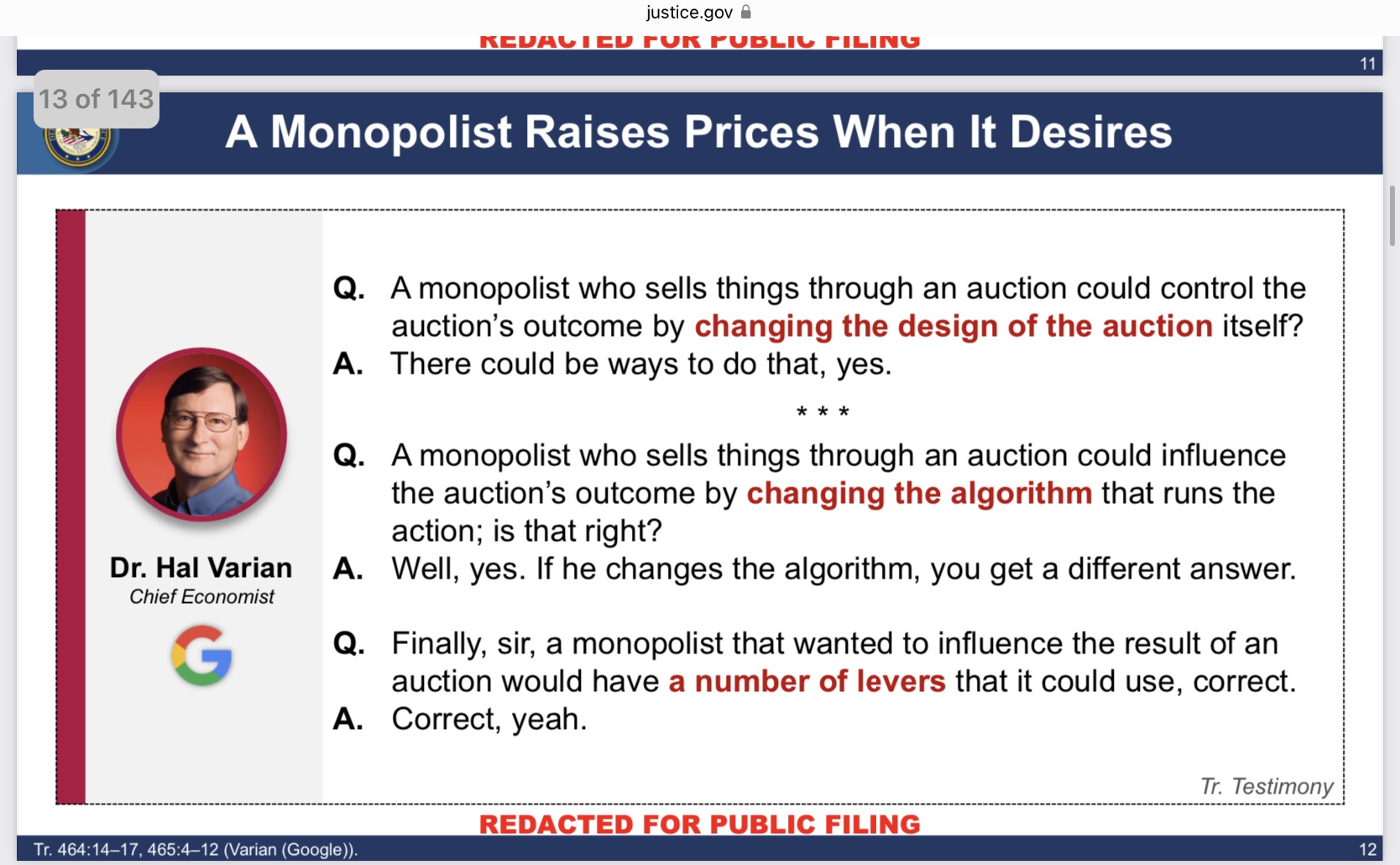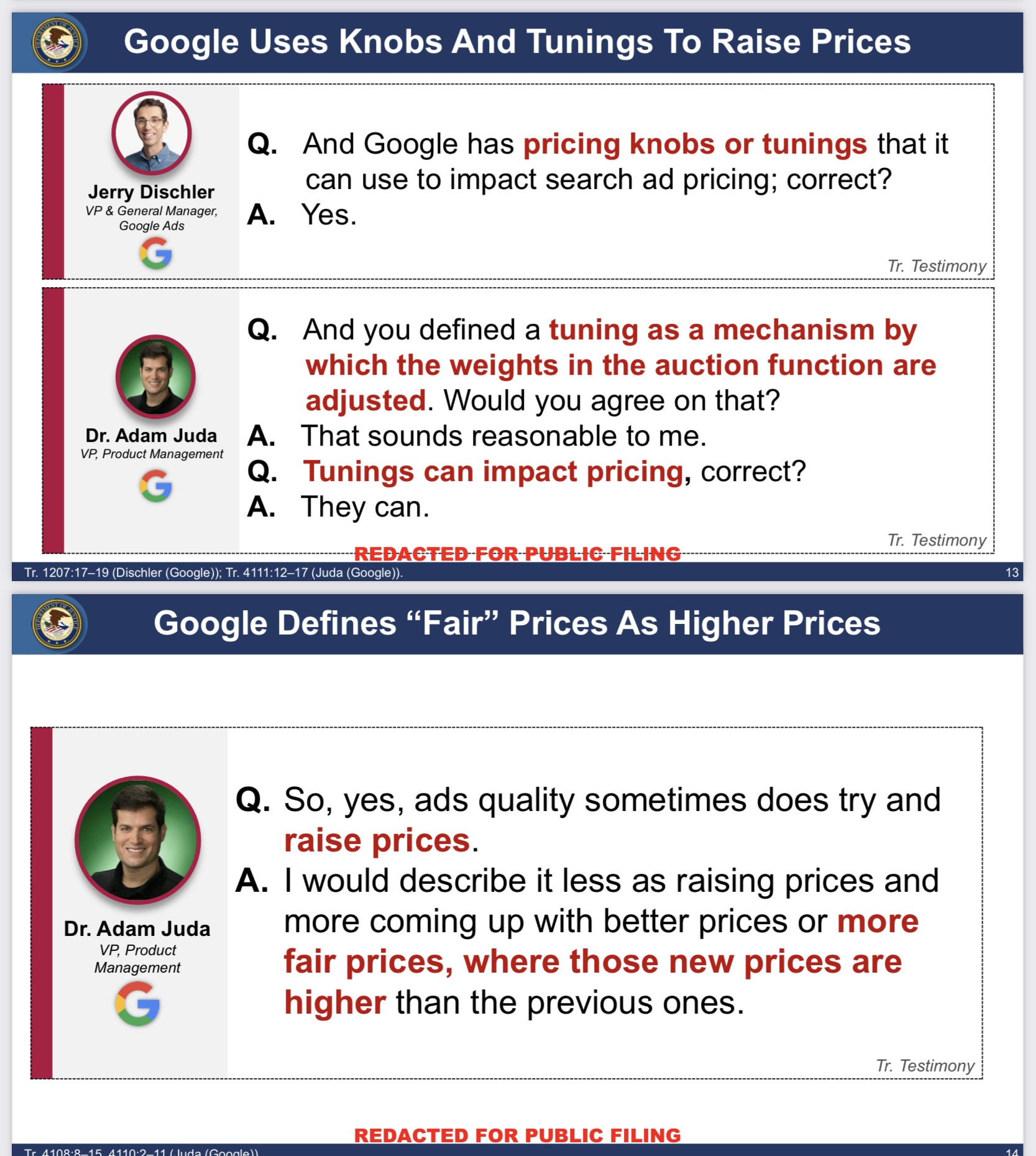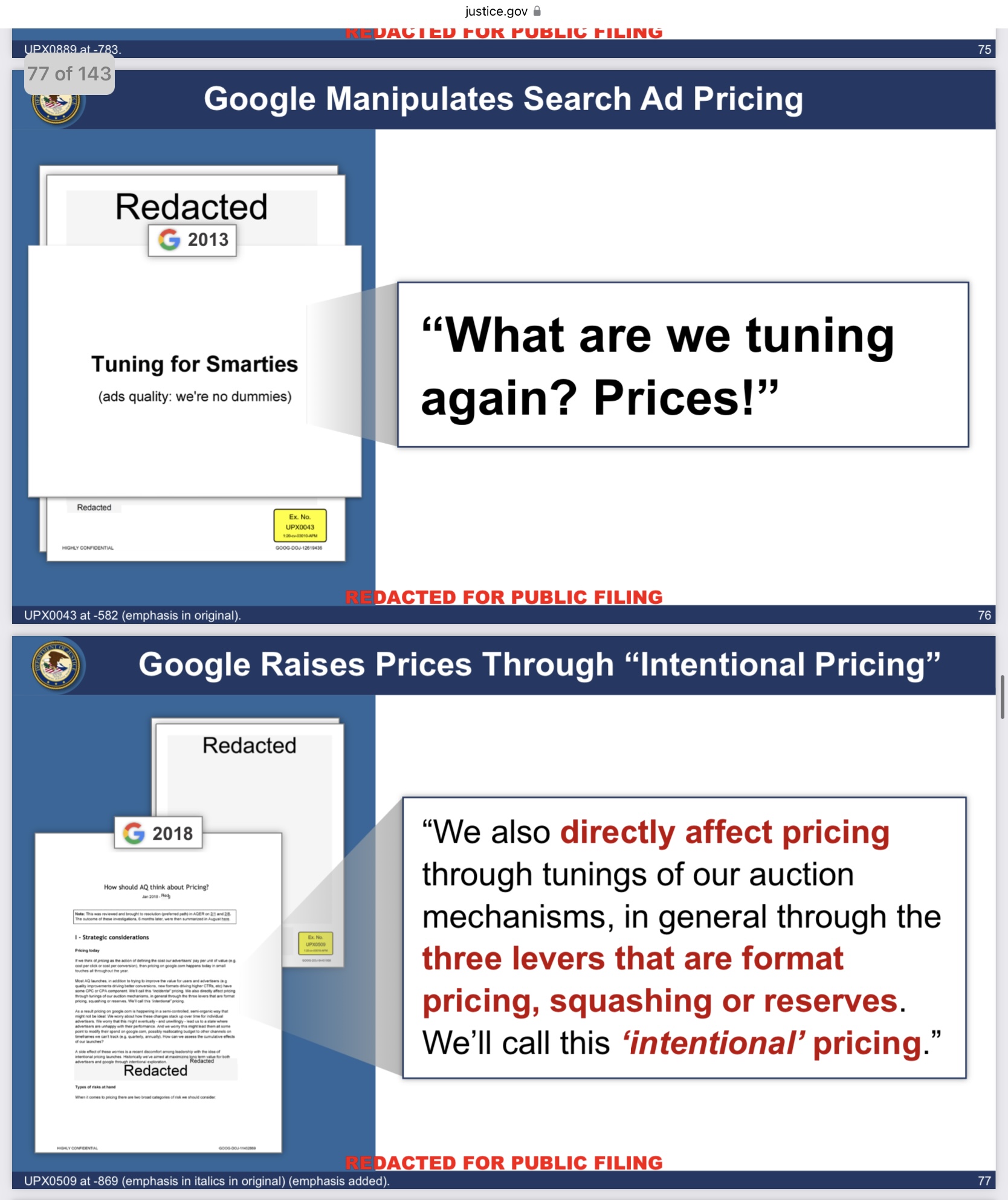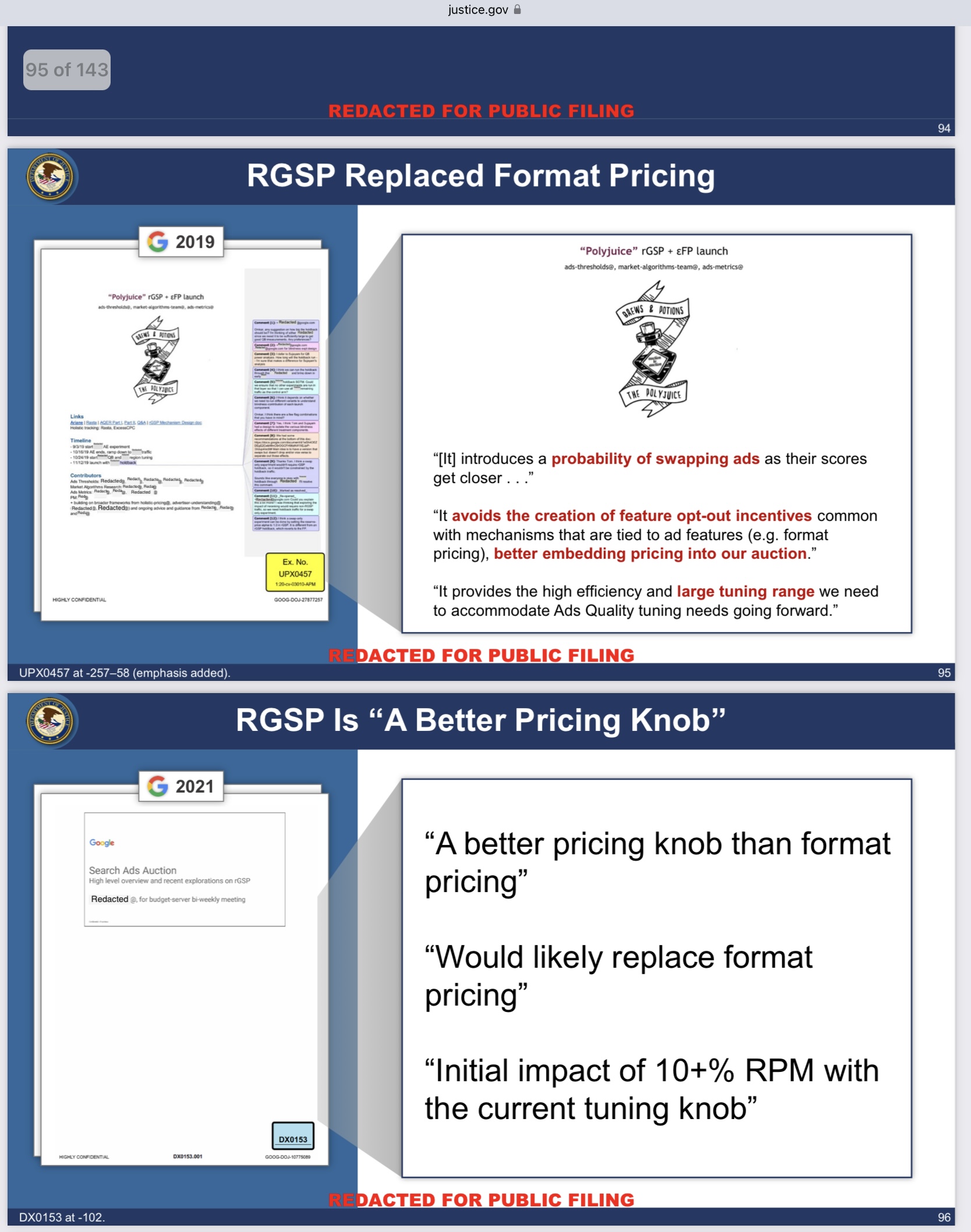
DOJ Antitrust finds Google in violation of the Sherman Act.
What Will The DOJ Google Antitrust Case Mean For The Future of Search?
The court’s decision finding Google in violation of antitrust laws could lead to significant changes in how Google operates its search engine and advertising businesses.
For Google Search
- Changes to Default Search Agreements: Google may be required to modify or terminate its exclusive agreements with browser developers, mobile device manufacturers, and carriers that make Google the default search engine. This could open up opportunities for other search engines to gain market share.
- Increased Competition: By reducing the barriers to entry and making it easier for competitors like Bing, DuckDuckGo, and others to be selected as default search engines, the competitive landscape could become more balanced.
- User Choice: Users might see more options for default search engines on their devices, potentially improving search quality and innovation as competitors strive to attract users.
For Google Ads
- Ad Pricing and Availability: Google’s ability to charge high prices for search ads might be curtailed, leading to more competitive pricing in the digital advertising market. Advertisers could benefit from lower costs and more options.
- Ad Quality and Innovation: if competition can be facilitated, Google may need to improve the quality of its ad platform service and ability to retain advertisers.
- Transparency and Fair Practices: There could be increased regulatory scrutiny to ensure Google’s ad platform operates transparently and fairly, without favoring its own services over competitors through a fair and open-sourced bidding auction process.
Overall Impact
- Regulatory Oversight: Google will likely face ongoing scrutiny and regulation to ensure compliance with antitrust laws and to prevent future monopolistic practices. This should go in conjunction with a board of public search to ensure a fair and open-source search ads matching and bidding programmatic standards accessible and auditable by the public.
- Market Dynamics: The decision may encourage other tech companies to avoid similar anticompetitive behaviors, fostering a more competitive and innovative tech industry.
- Legal and Financial Consequences: Google might face financial penalties and be required to make structural changes to its business practices, which could impact its profitability, market strategy and most importantly, stock price.
Using The Past As An Example: Bell Systems + Google
Background Antitrust Action: In 1982, the U.S. government reached a settlement with AT&T that required the company to divest its local exchange service operations, leading to the breakup of the Bell System into regional “Baby Bells.”
Structural Changes:
- Bell System: AT&T was split into multiple companies to increase competition in the telecommunications industry.
- Google: Similar structural changes could be imposed on Google. This might include separating the search engine business from its advertising business or breaking up its ad tech stack into smaller, independent entities to help foster competition.
Market Entry and Competition:
- Bell System: The breakup allowed new companies to enter the telecommunications market, increasing competition and innovation.
- Google: If Google’s ad business is restructured, and search is required to have a fair and open-sourced auction bid-based process, it could not only help bring transparency into a process, that has never had any. (The black box of Google as it is known) but could also foster new advertising platforms, providing healthy competition resulting in lower costs for advertisers.
Operational Independence:
- Bell System: The Baby Bells operated independently, leading to diverse business strategies and innovations in local telecommunications.
• Google: Separate entities within Google’s ad business could operate independently of search, fostering innovation and diverse approaches to paid search advertising.
Consumer and Market Benefits:
- Bell System: Consumers benefited from improved services, more choices, and lower prices due to increased competition.
- Google: Advertisers and consumers could benefit from better ad services, more transparency, competitive pricing, and increased innovation in digital advertising technologies. Fair and open-sourced auction-pricing standards would be a key step.
Third-Party Access:
- Following the Bell breakup, third-party providers gained access to telecommunications infrastructure.
- Similarly, Google might be required to grant third-party ad tech companies more access to its ad placements on the search results page, leveling the playing field.
Ad Auction and Pricing:
- Google might be required to change how it conducts ad auctions, ensuring more transparency and fairness. This could be similar to how the Bell System had to standardize and regulate telecommunications tariffs. Without seeing into the black box of Google ads, they are allowed to slowly increase costs while extracting value from those same clients while “recommending” the advertisers change more settings to ever increasing pad Google’s quarterly revenue.
In the documents released in the DOJ case in early May, we learned of the “shake the cushions” methods used to achieve this exact end.

The “levers” need to be fair and open, not only protect businesses from predatory, anticompetitive practices but to also keep from dark patterns emerging. (dark patterns: hidden changes to extract more money from users/advertisers without their knowledge.)

What other product or service do you use that is able to change the price and cost by 10-15% without notification or consent? Many times Google “reps” , actually 3rd party sales reps from Tele-Performance or REGALX, inundate every contact on the ad account to try and mislead them into switching to the “recommended” settings. At DC DiGiTAL PRO, our whole team takes pride in fighting these scam tactic at every level.
Between the tactics discovered througout the case along with the years of changes in:
- Keyword matching,
- Bidding protocols,
- AdRank,
- Auction dynamics,
- Ad formatting,
- Sunsetting of settings
- Campaign types (old Smart campaigns. PMAX, currently)
I think there will be numerous class action lawsuits over the coming decade for damages to small business they trampled in their stampede for, infinite revenue growth, at all costs. (Have your CIDs /Google Ads Account IDs saved for a future date.)

The only businesses that can set any price they want without the market driving them to bankruptcy is by maintaining a monopoly. That being said, utility companies have a board of public utilities to set pricing. One example of a fair pricing mechanism in a single provider industry.
“Fair pricing”
The only way to ensure fair prices exist in any market, is to ensure the pricing mechanisms, along with the supply and demand metrics are open and transparent. We require it for almost every other industry but tech companies somehow claimed it was IP while claiming their pages the products reside are covered under a “public forum” protections when it comes to moderation. Yet, Google has been removing clicks to non-Google owned properties from the search page controling who and what shows up for each person individually. They call it personalized search results, we call it a way to hide their real BS and future Dark Pattern location that needs to be forced into the light before this gets worse. Recently, more and more quick-click automated new search buttons (pills) have appeared everywhere. How many options leave a user on a new search results page, basically forcing them onto a search path, no one wanted, or asked for. A path Google choses by using large language models data science after tracking and feeding all of our “vital signals”. This is not only terrible for the consumer, but even worst for the industry. We continue the standard of allowing algorithms, run on public forum protected platforms to be held in a black box. This needs to end.

Formatting/ Format pricing:
When Google would use the ad extensions and amount of space the ad would take up on the screen to determine the cost to the advertiser, as changing the size of the ads real-estate or clickable elements, allowed google to increase the amount of an advertisers would pay at a given time.
Data and Privacy:
Just as the breakup of the Bell System led to better regulatory oversight of telecommunications data, Google might face stricter regulations on how it collects and uses data for advertising, putting user privacy and data protection above revenue generation. (First they still need to figure out the cookie-less future… Wink, Wink)
Final Thoughts
We can only hope good comes from this legal judgement against Google but we proceed with cautious optimism while we await further details on the consequences and next legal actions. At DC DiGiTAL PRO we stay on top of the latest news of the online search marketplaces, to stay ahead of the curve for our clients’ digital presence.
